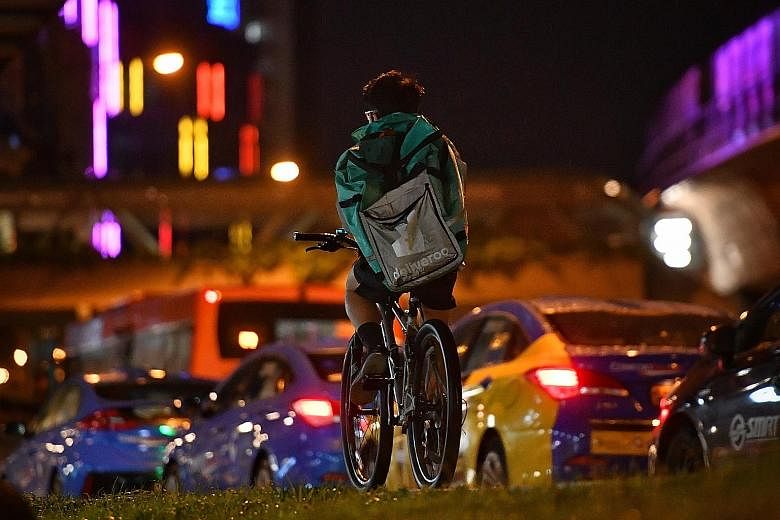The latest move by the Government to expand Covid-19 testing to community groups is a good strategy to catch asymptomatic infections, Professor Teo Yik Ying, dean of the National University of Singapore's (NUS) Saw Swee Hock School of Public Health, said yesterday.
But he added that making such a scheme mandatory would not be an efficient way of using Singapore's testing capability, especially given the low rate of community transmissions here, as a vast majority of the tests in such a scenario will likely turn out negative.
The Health Ministry (MOH) said last Saturday that it would offer a one-time coronavirus test to groups such as taxi and private-hire car drivers and food delivery workers to get a better picture of Covid-19 prevalence in the community.
Other groups that will be included under this scheme are key vendors servicing foreign worker dormitories, as well as stallholders at hawker centres, markets and similar food and beverage establishments such as coffee shops.
The costs of such tests will be fully paid for by the Government, but they are not compulsory.
Instead, MOH said it "strongly encourages" individuals in such groups to get tested.
Prof Teo told The Straits Times yesterday: "Based on the present situation of community spread in Singapore, where our case counts are actually very low, making this scheme a mandatory (one) will mean (diverting) tens of thousands of tests to screen these people, where the vast majority will actually be negative.
"Going directly to mandatory testing will not be an efficient use of our testing capability."
He added that making the scheme voluntary will still allow the authorities to get a sense of the prevalence of missed asymptomatic infections in the community among "high touchpoint" groups.
"If we realise the prevalence is actually not low, then this will be a signal to make the testing more systematic, perhaps by making it mandatory," he added.
In Hong Kong, voluntary coronavirus testing has produced less than satisfactory results.
The territory announced such a scheme for its entire population on Tuesday but, by its second day, only about one-tenth of its 7.5 million people had signed up - far fewer than the number necessary for the authorities to comprehensively discover hidden infections.
In China's Wuhan - the original epicentre of the outbreak - mandatory mass testing for 11 million people was carried out from May 14 to June 1.
The authorities there have reopened all its schools, and domestic tourists have returned.
Prof Teo noted that Singapore has some key features which make voluntary testing suitable.
"Singapore is smaller, and this makes it easier to coordinate our screening. Our community transmission rates are also very low, and this makes a voluntary scheme much more relevant to understand the extent of asymptomatic infections in the community," he said.
Associate Professor Tan Ern Ser of the department of sociology at NUS' Faculty of Arts and Social Sciences said that while a compulsory testing scheme may give a better assurance that the virus is no longer lurking within the populace, it would be costlier in terms of time and money.
He said voluntary testing would be practical only if the coronavirus situation was reasonably well contained, as it currently is here.
Singapore already has precautionary measures in place, he said, such as mandatory mask wearing and safe distancing, allowing community cases to be kept low.
Pointing to how most people here have been complying with such measures, he added: "The majority of Singaporeans are law-abiding and would self-police...
"Singaporeans are pragmatic people, they would do what is necessary to get back to their preferred way of life."


